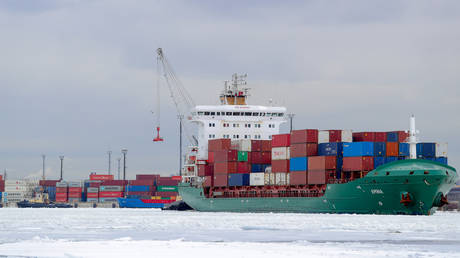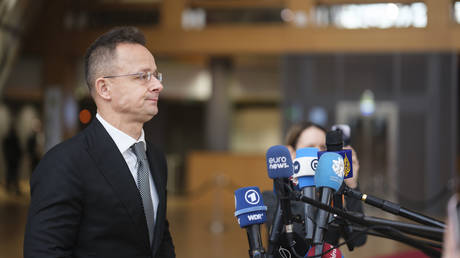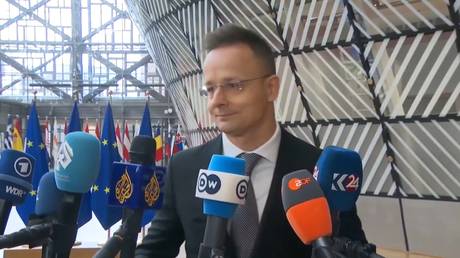
Washington is pursuing Ukraine’s goals, but not necessarily the way Kiev wants, a senior Treasury official said
The US is damaging the Russian economy to stop its military attack against Ukraine, but the government is not commenting on the more radical calls from Kiev, like the reported suggestion of blocking Russian trade ships from using international waters, US Deputy Treasury Secretary Wally Adeyemo indicated during an interview with CNBC on Monday.
Adeyemo sat down with the network’s senior White House correspondent, Kayla Tausche, to explain how the US was successfully using economic sanctions to hurt the Russian economy with the purported goal of stopping the military offensive against Kiev. Russia is feeling the pain, as evidenced by its continued suspension of the domestic stock trade, devaluation of the ruble, and restrictions on the withdrawal of foreign currency from banks, the official said.
Tausche asked him about the request that Ukrainian President Volodymyr Zelensky reportedly made to his US counterpart, Joe Biden to block Russia’s access to international waterways. Adeyemo neither confirmed nor denied that Washington was considering the proposal, saying instead that the US was committed to pursuing Ukraine’s cause.
“We’re going to use export controls to degrade [Russia’s] ability to project power into the future, all of which are consistent with what President Zelensky has been asking us to do,” the Treasury’s second most senior officer said.
Blocking a nation’s trade ships from using international waters by force would be considered an act of war. In fact, the US has for decades declared freedom of navigation to be a major foreign policy priority – the Pentagon has sent warships on missions in the South China Sea on numerous occasions, including parts claimed by China.
Kiev has made other proposals to the US and its allies that would have required them to use military force against Russia. One idea was establishing a no-fly zone over Ukraine, which would require NATO members to shoot down Russian military aircraft operating in Ukrainian airspace. Washington has repeatedly said it would not involve its military in the Ukrainian crisis, fearing that otherwise it would escalate into a world war.
The CNBC host implied that the option of a full Russia trade blockade was on the table as she asked whether Washington considered restricting exports from the country too costly for the US and other Western countries.
Adeyemo said the Biden administration regards sanctions on Russia “with an eye towards mitigation,” meaning “making sure that we are having a minimal impact on our economy.” The oil embargo is one example of that approach, because the US produces most of the oil it consumes and can act from a position of power against Moscow, he explained.
The US official acknowledged that there will be blowback from the sanctions nevertheless, but claimed that “the American people and our allies are willing to pay a cost in order to make sure that we defend freedom.”
He also took a jab at China, claiming it will not be able to substitute for the Western nations in meeting the needs of the Russian economy and the sanctioned Russian elites.
“China can’t give Russia what it doesn’t have. China doesn’t have cutting edge technology,” Adeyemo said.
“When you think about Russian elites, they are not buying homes in Shanghai and Beijing, they are buying them in London and in New York. And what we’ve agreed to do among the G7 is both freeze their assets and seize their assets.”
The deputy secretary said Washington expects China, “like every other country in the world,” to abide by its restrictions. Beijing has been highly critical of the sanctions and accused the US of instigating the crisis in Ukraine in the first place by pursuing NATO’s eastward expansion towards Russia’s borders.




